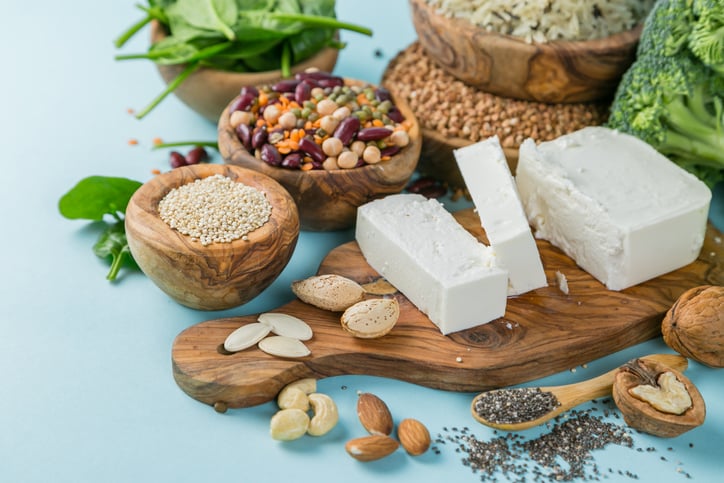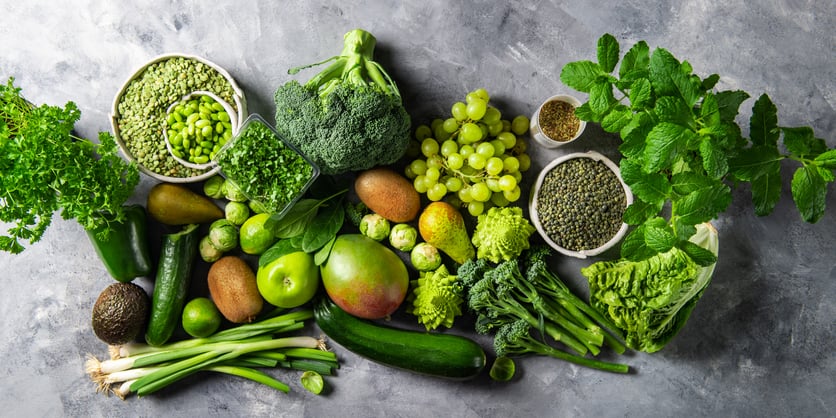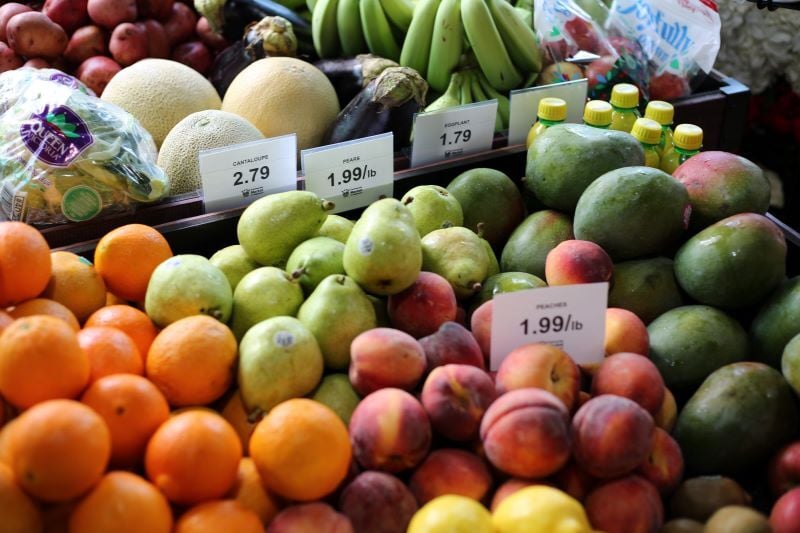Adopting a plant-based diet in Georgia offers a unique opportunity to enhance your health, boost kitchen confidence, and take action on climate at the same time. This comprehensive guide is tailored for beginners, with practical tips and insights specific to Georgia's rich agricultural offerings.
Understanding a Plant-Based Diet: Basics for Beginners
A plant-based diet primarily focuses on foods derived from plants, including fruits, vegetables, grains, beans, nuts, and seeds. Unlike vegan or vegetarian diets, which may entirely exclude animal products, a plant-based approach can be more flexible, allowing occasional inclusion of meat, poultry, dairy, or seafood based on personal preference.

Some also describe this type of eating as "climatarian," which refers to a diet chosen specifically to reduce one's carbon footprint, emphasizing local and seasonal produce to minimize environmental impact.
Keep reading to learn more about the benefits of a plant-based diet and find tips, shopping lists, and meal ideas to help you get started.
Sustainability and the Environmental Impact of Your Food Choices
Adopting a plant-based diet can help to protect the health of the planet as much as it can protect your own health.
Reducing Carbon Emissions
Conventional animal agriculture produces greenhouse gas emissions that fuel climate change. Cows, goats, and sheep produce methane gas, which is 28 times more potent than carbon dioxide at trapping heat in the atmosphere, as part of their digestion process and from their manure.
Lowering the demand for meat will reduce emissions from livestock farming. According to a 2022 article in Scientific American, simply removing beef from the typical American diet can lower the carbon footprint of our food by almost 25%.
Eating Local to Reduce Emissions and Build Georgia’s Economy
According to the U.S. Department of Agriculture, Georgia is ranked third in overall vegetable production after California and Florida and grows a wide variety of fruits and vegetables. However, much of the produce sold in your local grocery store is shipped from far away.
Produce shipped to your Georgia grocery store from California, Mexico, and beyond tends to have a much larger carbon footprint than locally grown foods. This is due to the emissions created by trucks, ships, and even planes that transport the food from the farm to your plate.
Eating locally grown foods also benefits our state economically. A University of Georgia study found that if each household in our state spent just $10 of their weekly food budget on Georgia-grown products, nearly $2 billion in food dollars would be reinvested back into the state.
Why Georgia is Perfect for a Plant-Based Diet
Georgia's diverse climate and fertile soil yield a bounty of seasonal produce, making it ideal for a plant-based lifestyle. From the famed peaches and pecans to collard greens and sweet potatoes, the state's agricultural abundance provides fresh, flavorful, and nutritious options year-round.

Exploring Georgia farmers markets and co-ops supports the local economy and ensures access to the freshest produce. The Georgia Department of Agriculture provides a list of community farmers' markets across the state, making it easy to find one near you.
How to Start a Plant-Based Diet for Beginners
If you are used to a diet rich in animal products, don’t rush your foray into plant-based eating! Go slowly and start by simply focusing on maximizing the amount of vegetables in your diet - ideally in a rainbow of colors. A good goal to strive for is to fill half your plate with fruits and vegetables.
At the same time, you can begin reducing animal proteins. You could begin by incorporating meat as a topping or garnish to your meal instead of the main event. Then, you could try eating meat-free one day per week.
Remember: you don’t need to become a strict vegetarian or vegan to have a positive impact on climate, the environment, and your health by following a mostly plant-based diet.
Building Your Plant-Based Pantry: Essentials for Beginners
Stocking your pantry with non-perishable staples is a cost-effective way to maintain a plant-based diet. It ensures that essential ingredients are readily available, making meal prep quick and easy without frequent grocery trips. Buying grains, legumes, and canned goods in bulk can reduce your grocery bill and cut down on packaging waste, too.
Additionally, having a variety of staples on hand encourages culinary creativity and flexibility, allowing for diverse and nutritious meals that support your move into plant-based eating long-term. Essential items include:
-
Grains: Brown rice, quinoa, oats, and whole-grain pasta.
-
Legumes: Black beans, lentils, chickpeas, and kidney beans.
-
Nuts and Seeds: Almonds, walnuts, chia seeds, and flaxseeds are all examples of nutritious, delicious nuts and seeds.
-
Spices and Herbs: Keep dried herbs and spices that you use regularly on hand to enhance flavor - from rosemary and thyme to cumin and coriander.
Georgia grocery stores often offer bulk sections where these items can be purchased affordably.
Fresh Produce: A Georgia Shopper’s Guide
Purchasing fresh, seasonal produce ensures optimal flavor and nutrition, supports local farmers, and reduces environmental impact.
Georgia's growing seasons provide a variety of options:
-
Spring: Strawberries, asparagus, lettuce, and spinach.
-
Summer: Blueberries, peaches, tomatoes, and cucumbers.
-
Fall: Apples, pumpkins, sweet potatoes, and kale.
-
Winter: Pecans, cabbage, broccoli, and collard greens.
For a detailed calendar of Georgia's seasonal produce, refer to the Georgia Grown Produce Calendar.
Proteins on a Plant-Based Diet: What to Look For
It's a common misconception that animal products are the only way to get protein. It may take a bit more thoughtful planning for a beginner, but a varied plant-based diet can meet all protein needs.

Make sure your diet is rich in protein-rich plant-based foods like:
-
Tofu and Tempeh: Versatile soy products rich in protein.
-
Legumes: Beans, lentils, and chickpeas provide substantial protein and fiber.
-
Nuts and Seeds: Offer healthy fats and protein; consider almond butter or sunflower seeds.
-
Whole Grains: Quinoa and farro are notable for their protein content.
These foods can be better for your health and for climate, and they will help your body develop muscle just as well as animal products. According to a study reported in Sports Medicine, a high-protein, plant-based diet supports muscle strength and mass gains just as well as a high-protein diet from animal sources.
Easy Plant-Based Meals You Can Make With This List
Creating a plant-based meal plan may seem daunting at first, but the possibilities are endless when it comes to creating tasty, easy-to-prepare dishes the whole family will enjoy.
Here are five beginner-friendly recipes incorporating Georgia-grown ingredients for inspiration:
-
Peach and Pecan Salad: Combine fresh peach slices, toasted pecans, mixed greens, and a balsamic vinaigrette.
-
Collard Green Wraps: Blanched collard leaves can be used as a wrap - try a filling of quinoa, black beans, diced tomatoes, and corn salsa.
-
Sweet Potato and Black Bean Chili: Simmer sweet potatoes, black beans, tomatoes, and spices for a hearty and satisfying dish.
-
Grilled Vegetable Skewers: Thread marinated zucchini, bell peppers, and cherry tomatoes onto skewers; grill and serve over brown rice.
-
Pecan-Crusted Tofu: Coat tofu slices in crushed pecans and bake until crispy; serve with steamed broccoli.
For quick meals on busy nights, consider stir-fries with seasonal vegetables, hearty salads, or whole-grain wraps. Batch-cooking staples like grains and legumes can also save you time and money.
Snacks, Treats, and Quick Bites: Georgia Favorites With a Plant-Based Twist
You can satisfy your cravings with delicious snacks and desserts that celebrate Georgia and just happen to be plant-based:
-
Healthy Snacks: Try simple but flavorful options like fresh fruit, vegetable sticks with hummus, or a handful of Georgia pecans.
-
Sweet Treats: Prepare a luscious peach sorbet or bake pecan-studded oatmeal cookies using plant-based ingredients.
Shopping on a Budget: Tips for Affordable Plant-Based Eating
Plant-based eating can save your family money if you plan ahead and emphasize whole foods over processed meat substitutes. These strategies can help you maintain a plant-based diet on a budget:
-
Meal Planning: Calendar meals for the week to create an efficient shopping list. This will help you minimize impulse buys and wasted food by ensuring you only buy as much food as you need for the week
-
Budget-Friendly Stores: Explore local farmers' markets and co-ops in your area. Stores that offer bulk sections for spices, grains, nuts, and beans can also help you save money on your weekly shopping.
-
Reducing Food Waste: Don’t buy more fresh food than you need, and be sure to store perishables properly. Plan to repurpose leftovers in your menu for the week to get the most out of your meals.
Planning for Social Gatherings and Dining Out on a Plant-Based Diet
Following a diet rooted in plant-based ingredients can be easy to manage at home, but what about when you are dining out or at social events?

One enjoyable way to stick to your new plant-based diet in restaurants is to order multiple appetizers or other small dishes like salads, soups, and vegetable side dishes instead of an entree. These items often include less meat than main courses and can also be a fun way to sample multiple dishes and different flavors in a single meal.
>> Three Tips for Enjoying a Plant-Based Diet
Try Switching to a Plant-Based Diet Today
Adopting a plant-based diet doesn’t have to mean going vegan, or sacrificing all the foods you love. It’s also one of the most impactful individual actions you can take to help reduce GHG emissions.
Ready to give it a try? Start Here: Drawdown Georgia’s free “How to Switch to a Plant-Based Diet” Toolkit is a great resource to help you get started on a path toward plant-based eating that is just as good for climate and the environment as it is for your health.









